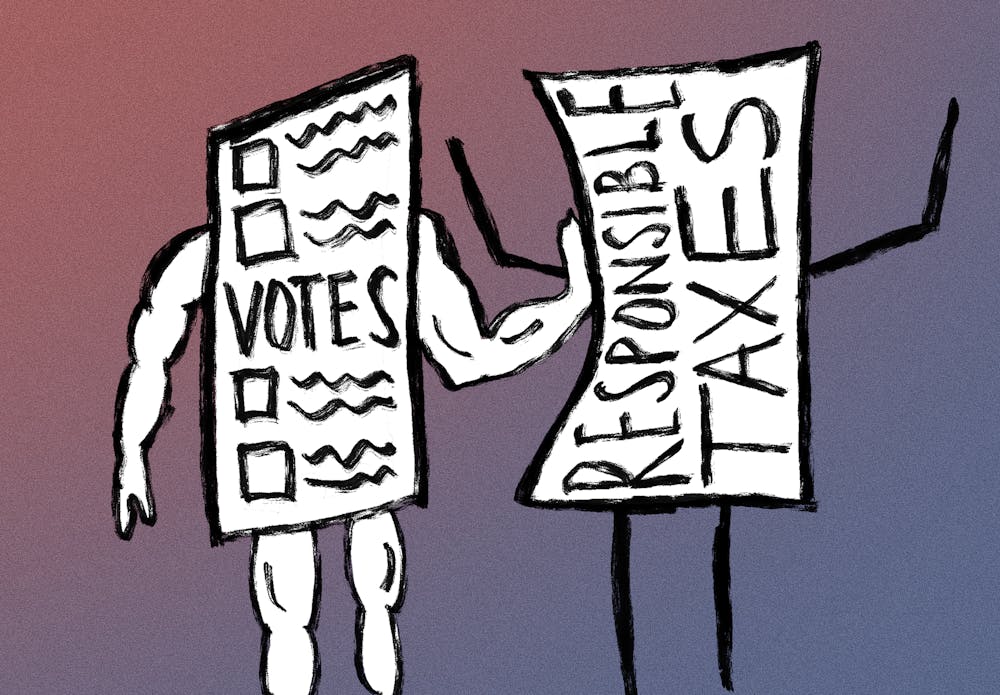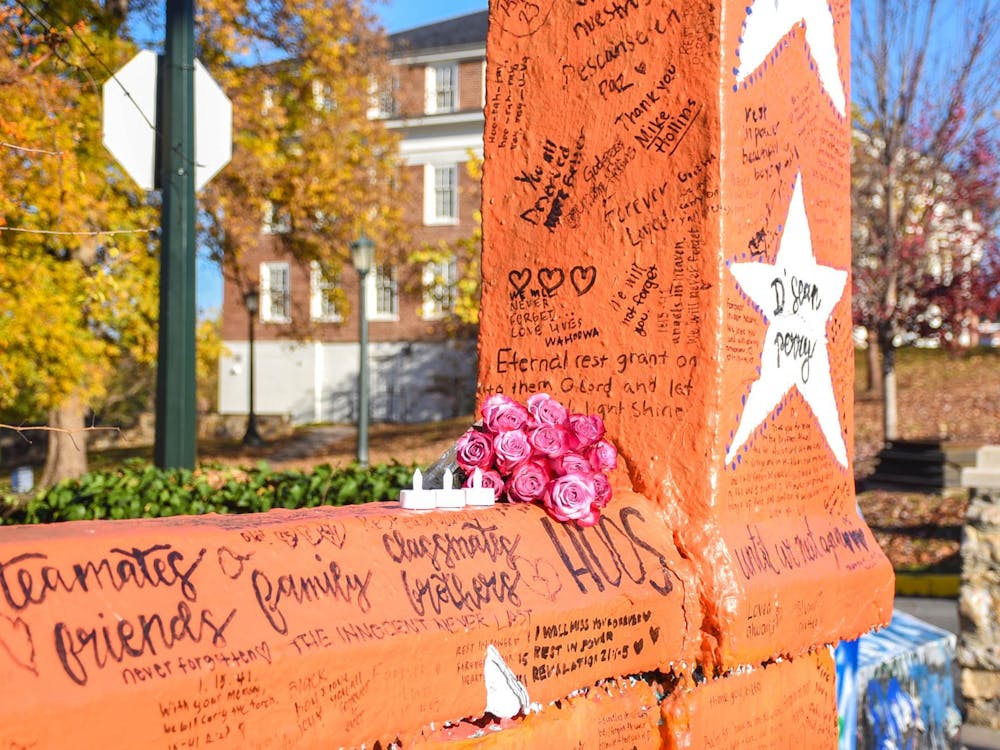Ben Franklin once said, “Nothing is certain except death and taxes.” Equally certain is the constant struggle between conservatives and liberals over how to apply tax policy. In Virginia, Gov. Glenn Youngkin has shown that he is not immune to this struggle — he signed into law a recent and concerning budget proposal which garnered extensive conservative support in a state with a razor thin electorate margin. In doing so, he honored his dubious pledge, aimed largely at conservative voters, to keep Virginia taxes low. While this tax reform is certainly popular among both citizens and enterprising politicians, using taxes — specifically income and property tax — as a means to meet political goals is dangerous for Virginia in the long term. Virginia’s economy and residents would be better served by a tax code that addresses the needs of the economy rather than enterprising politicians.
The Virginian tax code as it stands is rather uninteresting. What is super intriguing is how politicians use it. According to economists, taxes should be raised when the economy is doing well and lowered when it is not. Such a policy dampens ebbs and flows and raises as much revenue as possible for the government without overtaxing Americans. Unfortunately, this sort of dampening policy is not popular with voters — no politician has ever made a career promising higher income and property taxes when times were good. So politicians continually try to lower taxes, increase the spending deficit, require higher borrowing and eventually spur worse interest rates for everyone.
Youngkin has ignored the consequences of this politicized tax policy and has opted to become just another politician deciding that, in the long run, they value votes more than Virginia’s well-being. In late May, the Governor signed the Taxpayer Protection Pledge, which declares that all signatories must “oppose any and all tax increases.” Such a pledge runs contradictory to the “dampening” tax theory and locks the Governor into a commitment that is extreme at best and dangerous at worst — resolving to lower taxes only serves to reduce the funds available for popular Virginian social programs.
Perhaps Youngkin believed that he was acting for the will of his constituents, but even if risking the fiscal future of Virginia might be what the voters want, it is not in Virginians’ best interest. As it stands, Virginia does not have a budget problem, but the future remains uncertain, especially given that the forecasts for revenue growth were miscalculated by over 10 percent. If Youngkin remains steadfast in his commitment to continually lower taxes, the state will be unprepared when it inevitably requires funds to function. In short, setting a precedent for increasingly low taxes is unsustainable. Nothing gold can stay, not even low taxes.
If the opinion of almost every economist in the world is not enough to make you appreciate a careful strategy for tax policy, take Youngkins' own words. When proposing 2022 tax cuts, Youngkin advocated for a cautious approach when discussing long-term tax reform — when referencing future tax policy, he expressed concern that “our crystal ball is not that far in advance.” Why would Youngkin switch from a fairly fiscally responsible position to one of politically driven ignorance?
It is true that his proposed 2022 tax cuts did not get past the legislature, but certainly they were more respectable than those of the present — the 2022 cuts were temporary in nature and solicited further discussion. While the change in Youngkin’s ideas about tax policy may be initially surprising, they are ultimately well explained by his political ambitions on a national stage which are amplified by the upcoming election. Nevertheless, the public deserves an actual discussion of this policy and not a mere show of conservative allegiance
Youngkin has decided to kneel to irresponsible tax policy, and as such, Virginia will lose a critical component of both tax policy and informed democracy. With this pledge, he has irresponsibly foregrounded income and property tax — taxes which have a uniquely emotional impact on voters — when in reality corporate income tax has a far larger impact on the economy than either income or property tax.
Voters tend to be less focused on corporate tax in part because it does not directly impact their bank account, and because signing pledges tends to preclude the discussion of how taxes need to be levied, particularly discussion of corporate income tax. This lesser-known corporate tax holds more importance in the United States economy and deserves to be discussed on a larger stage, rather than in the confines of business meetings. When corporate tax is sidelined by political tax maneuvering and when politicians emphasize individualistic taxes, voters lack information on a crucial aspect of their well-being.
Taxes are complicated and deserve to be researched thoroughly by professionals. However, it does not take an accountant to know that the incomes of Virginians are being used as political fodder, something that should never take priority over the long term health of the economy and individual citizen prosperity. Youngkin has put his foot down on tax policy, but by this he may end up putting that foot in his mouth.
Paul Kurtzweil is a senior associate opinion editor who writes about economics, business and housing for The Cavalier Daily. He can be reached at opinion@cavalierdaily.com.
The opinions expressed in this column are not necessarily those of The Cavalier Daily. Columns represent the views of the authors alone.







